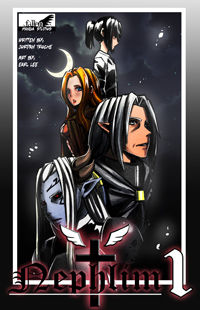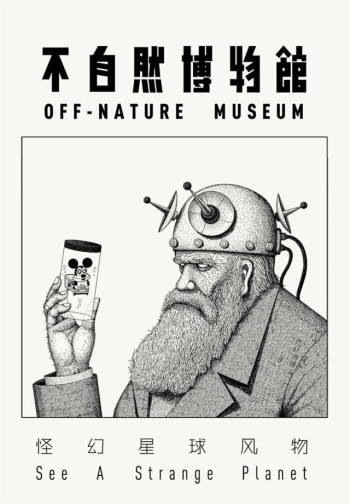Summary

1984
by George Orwell
Winston Smith toes the Party line, rewriting history to satisfy the demands of the Ministry of Truth. With each lie he writes, Winston grows to hate the Party that seeks power for its own sake and persecutes those who dare to commit thoughtcrimes. But as he starts to think for himself, Winston can’t escape the fact that Big Brother is always watching...
A startling and haunting novel, 1984 creates an imaginary world that is completely convincing from start to finish. No one can deny the novel’s hold on the imaginations of whole generations, or the power of its admonitions—a power that seems to grow, not lessen, with the passage of time.
.
Read
1984 on http://kissnovel.net
Martial Peak Reviews
George Orwell's 1984 is not merely a novel; it is a profound exploration of totalitarianism, surveillance, and the malleability of truth. Written in 1949, Orwell's dystopian vision of a future where the state exerts absolute control over every aspect of life resonates with readers even today, making it a timeless classic that continues to provoke thought and discussion.
The story follows Winston Smith, a low-ranking member of the Party in the superstate of Oceania, where the omnipresent figure of Big Brother watches every move. Winston's job at the Ministry of Truth involves rewriting historical records to align with the Party's ever-changing narrative. This act of falsification serves as a metaphor for the manipulation of truth and the dangers of a society that prioritizes conformity over individuality.
One of the most striking themes in 1984 is the concept of surveillance and control. The Party's slogan, "Big Brother is watching you," encapsulates the pervasive nature of the regime's surveillance. Citizens are constantly monitored, not only through telescreens but also through the threat of thought police. This atmosphere of fear stifles dissent and promotes self-censorship, forcing individuals to conform to the Party's ideology. Orwell's depiction of a society stripped of privacy serves as a chilling warning about the potential consequences of unchecked governmental power.
Another significant theme is the manipulation of language and thought. The Party employs Newspeak, a language designed to limit the range of thought by reducing the complexity of language. By eliminating words that express dissent or rebellion, the Party aims to eradicate the possibility of rebellious thoughts—what Orwell refers to as "thoughtcrime." This linguistic control highlights the relationship between language and thought, suggesting that if one cannot articulate dissent, one cannot conceive of it. The idea that "the revolution will be complete when the language is perfect" underscores the insidious nature of the Party's control over reality.
Winston's character development is central to the narrative. Initially, he is a passive participant in the Party's machinations, but as he begins to question the regime, he embarks on a journey of self-discovery. His illicit love affair with Julia serves as a rebellion against the Party's oppressive norms, allowing him to experience genuine human connection and emotional intimacy. However, this brief taste of freedom is ultimately crushed by the Party's brutal enforcement of conformity. Winston's eventual betrayal of Julia under torture illustrates the devastating power of the state to break the human spirit and enforce loyalty through fear.
The relationship between Winston and Julia is another focal point of the novel. Their love is not just a personal rebellion; it symbolizes a collective yearning for freedom and individuality. However, their relationship is doomed from the start, as the Party's influence permeates every aspect of life. Orwell poignantly illustrates that even the most intimate human connections can be corrupted by a totalitarian regime. This tragic love story serves as a microcosm of the broader struggle against oppression, emphasizing the fragility of personal freedom in the face of overwhelming power.
Orwell's use of symbolism throughout 1984 enhances its thematic depth. The omnipresent telescreens represent the invasive nature of state surveillance, while the concept of "doublethink"—the ability to hold two contradictory beliefs simultaneously—illustrates the psychological manipulation employed by the Party. The infamous Room 101, where prisoners face their greatest fears, symbolizes the ultimate loss of autonomy and the lengths to which the Party will go to maintain control.
The impact of 1984 extends beyond its narrative; it has become a cultural touchstone that informs contemporary discussions about privacy, government surveillance, and the nature of truth. Phrases like "Orwellian" and "Big Brother" have entered the lexicon, serving as shorthand for the dangers of authoritarianism and the erosion of civil liberties. In an age where technology enables unprecedented levels of surveillance, Orwell's warnings feel more relevant than ever.
In comparison to other dystopian works, such as Aldous Huxley's Brave New World or Ray Bradbury's Fahrenheit 451, 1984 stands out for its unflinching portrayal of a society stripped of freedom and individuality. While Huxley presents a world sedated by pleasure and consumerism, Orwell's vision is one of stark oppression and fear. Both novels serve as cautionary tales, but Orwell's work resonates with a raw urgency that compels readers to confront the realities of power and control.
In conclusion, George Orwell's 1984 is a masterful exploration of the dark potential of totalitarianism and the fragility of truth. Its themes of surveillance, language manipulation, and the struggle for individuality continue to resonate with readers across generations. As we navigate an increasingly complex world, Orwell's insights serve as a powerful reminder of the importance of vigilance in safeguarding our freedoms. The haunting imagery and profound ideas presented in this novel ensure its place as a cornerstone of modern literature, challenging us to reflect on the nature of power and the human spirit.
























Reviews 0
Post a Reviews: